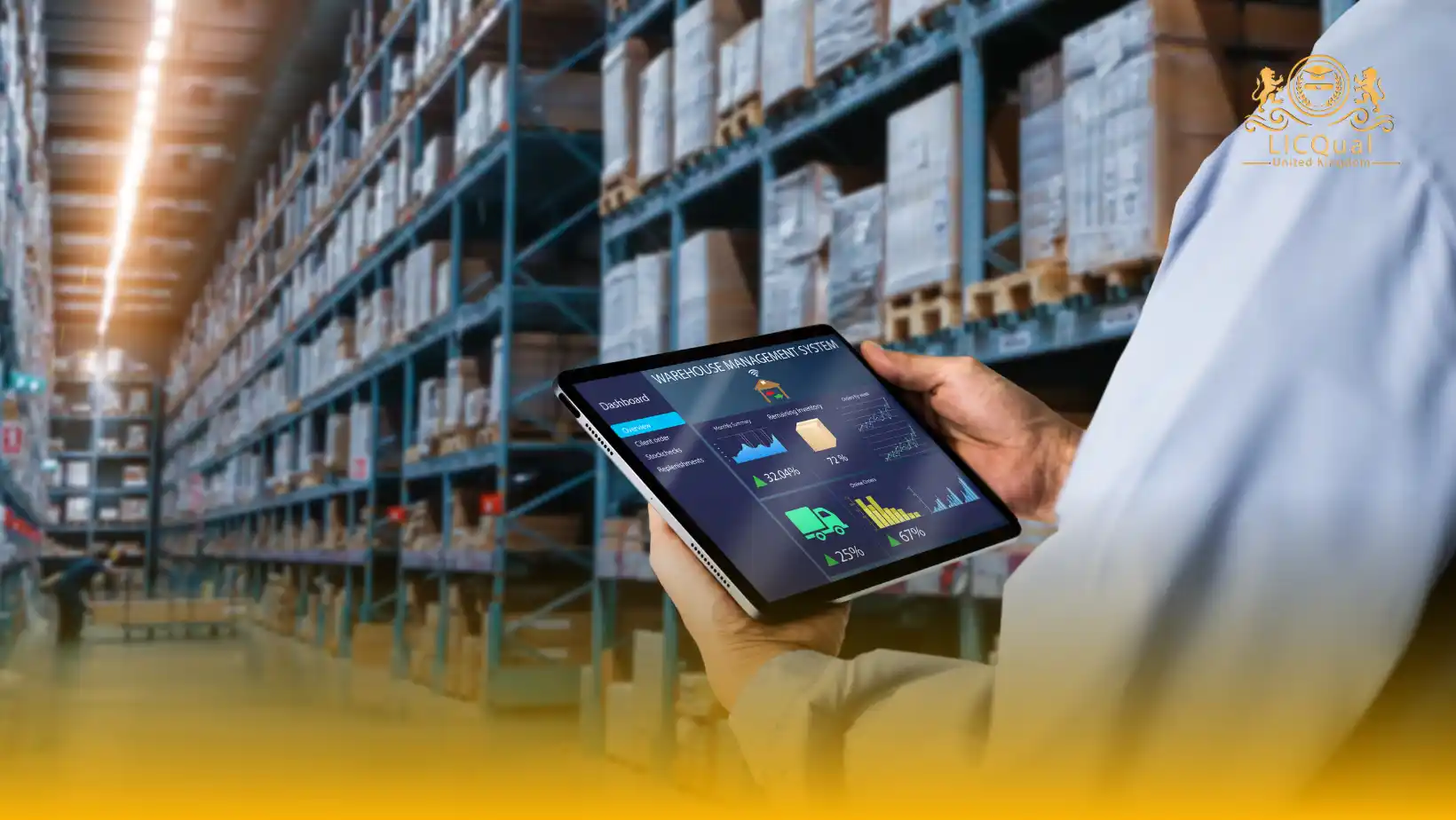In today’s competitive and highly regulated oil and gas industry, ensuring quality, compliance, and consistency is more important than ever. The LICQual ISO 29001:2020 Lead Auditor course is an internationally recognized training program designed to equip professionals with the skills and knowledge required to audit Quality Management Systems (QMS) in accordance with the ISO 29001:2020 standard. This specialized course focuses on the petroleum, petrochemical, and natural gas industries, addressing sector-specific quality management requirements.
Whether you are a quality professional, internal auditor, consultant, or manager aiming to advance your career, this course provides a solid foundation in the principles and practices of effective auditing. Participants will gain a thorough understanding of the ISO 29001:2020 framework and its alignment with ISO 9001, enabling them to conduct both internal and external audits with competence and confidence.
Delivered by certified experts and structured according to LICQual’s internationally benchmarked standards, this course emphasizes practical auditing skills, real-world case studies, and role-playing scenarios to enhance learning and application. Upon successful completion, participants will receive a prestigious LICQual certification, verifying their expertise as an ISO 29001:2020 Lead Auditor and increasing their global employability.
As industries demand higher standards for quality assurance and risk management, the need for qualified lead auditors is on the rise. This course not only prepares you for a rewarding auditing career but also strengthens your ability to drive continual improvement within your organization.
The LICQual ISO 29001:2020 Lead Auditor course is a comprehensive training program tailored for professionals seeking to master the auditing process of Quality Management Systems within the oil and gas sector. It offers an in-depth exploration of ISO 29001:2020—an industry-specific standard that integrates quality and risk management principles with a strong focus on customer and regulatory requirements.
This course begins with a detailed introduction to the ISO 29001:2020 standard, its objectives, and how it relates to ISO 9001. Participants will explore the scope, structure, and key clauses of the standard, understanding how to interpret and apply them in the context of an audit. Emphasis is placed on planning and conducting audits, gathering objective evidence, identifying non-conformities, and reporting findings in a clear and actionable manner.
Through interactive sessions, workshops, and simulated audit exercises, learners develop hands-on expertise in leading an audit team, managing audit logistics, and engaging effectively with auditees. The course also covers ethical auditing practices, risk-based thinking, process-based auditing techniques, and continual improvement strategies—skills that are critical for effective audit leadership.
By the end of the program, participants will be proficient in managing the full audit cycle—from preparation to follow-up—according to ISO 19011 and ISO 17021 guidelines. They will be capable of evaluating the performance and effectiveness of a QMS, ensuring alignment with ISO 29001:2020 requirements, and recommending improvements that add real value to organizations.
Ideal for aspiring auditors, quality managers, compliance officers, and consultants, this course is your gateway to international certification and career advancement. With the LICQual ISO 29001:2020 Lead Auditor certification, you gain not only a credential but also a reputation for excellence in quality auditing within high-stakes industries.
Course Overview
Qualification Title
LICQual ISO 29001:2020 Lead Auditor
Total Units
6
Total Credits
40
GLH
120
Qualification #
LICQ2200407
Qualification Specification
To enroll in the LICQual ISO 29001:2020 Lead Auditor applicants must meet the following criteria:
|
Qualification# |
Unit Title |
Credits |
GLH |
|---|---|---|---|
|
LICQ2200407-1 |
Introduction to ISO 29001:2020 and QMS Principles |
8 |
24 |
|
LICQ2200407-2 |
Auditing Principles and Techniques |
8 |
24 |
|
LICQ2200407-3 |
Planning and Preparing for ISO 29001:2020 Audits |
6 |
18 |
|
LICQ2200407-4 |
Conducting ISO 29001:2020 Audits |
6 |
18 |
|
LICQ2200407-5 |
Audit Reporting and Follow-Up |
6 |
18 |
|
LICQ2200407-6 |
Closing Meetings and Audit Conclusions |
6 |
18 |
By the end of this course, learners will be able to:
1. Introduction to ISO 29001:2020 and QMS Principles
- Demonstrate a comprehensive understanding of the ISO 29001:2020 standard and its alignment with ISO 9001.
- Explain the structure, scope, and key objectives of a Quality Management System (QMS) within the oil, gas, and petrochemical industries.
- Identify and interpret the core principles of quality management as applied in ISO 29001:2020.
- Analyze the significance of risk-based thinking and continual improvement in industry-specific QMS applications.
2. Auditing Principles and Techniques
- Explain the fundamental principles of auditing based on ISO 19011 guidelines.
- Apply key auditing techniques such as process-based auditing, sampling methods, and evidence gathering.
- Demonstrate ethical behavior, objectivity, and confidentiality as an auditor.
- Assess auditor competencies and the responsibilities of audit team members during an audit assignment.
3. Planning and Preparing for ISO 29001:2020 Audits
- Develop comprehensive audit plans and checklists based on ISO 29001:2020 requirements.
- Identify audit scope, objectives, and criteria relevant to the QMS being audited.
- Effectively communicate with auditees during the audit preparation stage.
- Organize resources, documentation, and team responsibilities to conduct efficient audits.
4. Conducting ISO 29001:2020 Audits
- Perform systematic on-site audit activities including opening meetings, interviews, and documentation review.
- Gather and evaluate objective evidence to determine conformity or nonconformity with ISO 29001:2020 requirements.
- Manage audit team activities, maintain audit trails, and handle unexpected situations during audits.
- Apply professional judgment to assess compliance with sector-specific QMS requirements.
5. Audit Reporting and Follow-Up
- Prepare clear, concise, and evidence-based audit reports in accordance with ISO 19011 and organizational requirements.
- Identify and classify nonconformities and provide actionable recommendations for corrective action.
- Communicate audit findings effectively to relevant stakeholders.
- Monitor and verify the implementation of corrective actions to ensure QMS improvements.
6. Closing Meetings and Audit Conclusions
- Conduct structured closing meetings to present audit findings, conclusions, and recommendations.
- Facilitate constructive dialogue with auditees to clarify observations and encourage improvement.
- Formulate final audit conclusions based on objective evidence and audit criteria.
- Document and deliver audit results in a professional and persuasive manner aligned with ISO auditing standards.
This diploma is ideal for:
- Professionals working in the oil, gas, petrochemical, and energy sectors who are responsible for quality management or regulatory compliance.
- Internal auditors seeking to upgrade their skills and become certified lead auditors for ISO 29001:2020.
- Quality assurance and control personnel aiming to deepen their understanding of industry-specific quality management systems.
- Consultants who advise organizations on implementing and auditing ISO-based management systems.
- HSE (Health, Safety & Environment) professionals looking to expand their auditing capabilities within integrated management systems.
- Engineers and technical managers involved in operations, manufacturing, or process management who need to understand quality auditing requirements.
- Individuals with prior knowledge of ISO 9001 or QMS who wish to specialize in ISO 29001 for the oil and gas sector.
- Anyone pursuing a globally recognized auditing qualification to enhance career opportunities in high-risk, quality-driven industries.
Assessment and Verification
All units within this qualification are subject to internal assessment by the approved centre and external verification by LICQual. The qualification follows a criterion-referenced assessment approach, ensuring that learners meet all specified learning outcomes.
To achieve a ‘Pass’ in any unit, learners must provide valid, sufficient, and authentic evidence demonstrating their attainment of all learning outcomes and compliance with the prescribed assessment criteria. The Assessor is responsible for evaluating the evidence and determining whether the learner has successfully met the required standards.
Assessors must maintain a clear and comprehensive audit trail, documenting the basis for their assessment decisions to ensure transparency, consistency, and compliance with quality assurance requirements.







